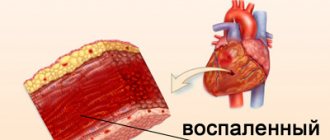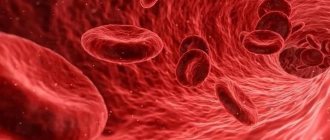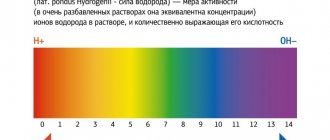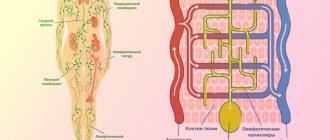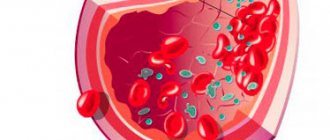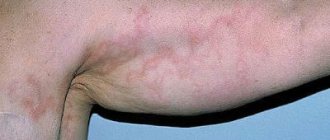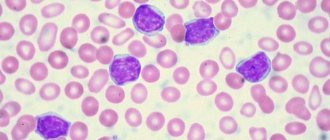As everyone knows, chlorine is dangerous. In gaseous form, it has a suffocating effect and has a toxic effect on the body. For the first time, it was used in the form of chemical weapons! But in addition to its aggressive properties, the mineral also exhibits positive effects.
The use of chlorine, for example, allows us to disinfect drinking water and protects us from many troubles that could be associated with drinking ordinary non-chlorinated water.
Along with drinking water, residual chlorine ions enter the body, but this is not a problem, because chlorine is necessary to maintain a number of processes occurring in the body. Like many other minerals, it is vital and irreplaceable.
Biological role of chlorine
Functions of chlorine:
• Working in a “trio” with sodium and potassium, chlorine is involved in maintaining the water-salt balance of the body. It retains the optimal amount of fluid in the body and is responsible for its distribution inside and outside cells, in blood vessels and tissues. • Takes part in the transport of various molecules into and out of the cell. • Improves digestion, since chlorine is a component of gastric juice. • Participates in the functioning of the kidneys, removing toxins and metabolites from the body. • Protects the liver from obesity. • Responsible for the full functioning of the brain along with other, very numerous elements and connections. • Helps maintain constant blood pressure.
Properties of chlorine
Chlorine occupies 17th place in the periodic table of Mendeleev. They first learned about it in 1774. Chlorine is a reactive non-metal and belongs to the group of halogens. “Real” chlorine under normal conditions (0 degrees) is a yellow-green poisonous gas with a suffocating odor. In general, in nature the element is found in various mineral compounds. The main reserves of chlorine are concentrated in the salts of the oceans and seas. Our body contains approximately 95 g of this substance.
Chlorine: price and sale
Minimal amounts of chlorine are present in many dietary supplements. If you are interested in high-quality and well-composed biocomplexes, explore the assortment of our store. We can offer you the best vitamins and dietary supplements from domestic and foreign manufacturers. You can buy them at the best prices and with fast delivery to any city in the country.
Also on our website you can get a free consultation with a nutritionist on taking dietary supplements and vitamins.
There is a toll-free number for regions
8 800 550-52-96.
The benefits and harms of chlorine
The benefits of chlorine can hardly be overestimated. This element regulates the acid-base balance, promotes the removal of excess fluid and salts, activates digestion processes, and cleanses the liver of fat. On the other hand, scientific research shows that with prolonged exposure to chlorine and its excess, free radicals begin to form in the body. They belong to the group of carcinogenic substances and cause irreparable damage to cells and tissues. Both chlorine deficiency and excess are not very good for our body, so it is important to monitor its amount.
Chlorine (Cl, Chlorine)
History of chlorine
In 1774, Karl Scheele, a chemist from Sweden, first obtained chlorine, but it was believed that it was not a separate element, but a type of hydrochloric acid (calorizator). Elemental chlorine was obtained at the beginning of the 19th century by G. Davy, who decomposed table salt into chlorine and sodium by electrolysis.
General characteristics of chlorine
Chlorine (from the Greek χλωρός - green) is an element of group XVII of the periodic table of chemical elements D.I. Mendeleev, has atomic number 17 and atomic mass 35.452. The accepted designation is Cl (from the Latin Chlorum).
Being in nature
Chlorine is the most abundant halogen in the earth's crust, most often in the form of two isotopes. Due to chemical activity, it is found only in the form of compounds of many minerals.
Physical and chemical properties
Chlorine is a poisonous yellow-green gas that has a strong, unpleasant odor and a sweetish taste. After its discovery, it was proposed to call chlorine a halogen; it is included in the group of the same name as one of the most chemically active non-metals.
Daily chlorine requirement
Normally, a healthy adult should receive 4-6 g of chlorine per day; the need for it increases with active physical activity or hot weather (with increased sweating). Typically, the body receives its daily requirement from food with a balanced diet.
Foods rich in chlorine
The main supplier of chlorine to the body is table salt, especially if it is not heat-treated, so it is better to salt ready-made dishes. Eggs, seafood, meat, peas, beans and lentils, buckwheat and rice, and olives also contain chlorine.
Interaction with others
The acid-base and water balance of the body is regulated by potassium, sodium and chlorine.
Signs of Chlorine Lack
A lack of chlorine is caused by processes that lead to dehydration of the body - heavy sweating in the heat or during physical exertion, vomiting, diarrhea and some diseases of the urinary system. Signs of chlorine deficiency are lethargy and drowsiness, muscle weakness, obvious dry mouth, loss of taste, and lack of appetite.
Signs of excess chlorine
Signs of excess chlorine in the body are: increased blood pressure, dry cough, pain in the head and chest, pain in the eyes, lacrimation, disorders of the gastrointestinal tract. As a rule, an excess of chlorine can be caused by drinking ordinary tap water that undergoes a chlorine disinfection process and occurs in workers in industries that are directly related to the use of chlorine.
Beneficial properties of chlorine and its effect on the body
Chlorine in the human body:
- regulates water and acid-base balance,
- removes fluid and salts from the body through the process of osmoregulation,
- stimulates normal digestion,
- normalizes the condition of red blood cells,
- cleanses the liver of fat.
Use of chlorine in life
The main use of chlorine is in the chemical industry, where it is used to produce polyvinyl chloride, foam plastic, packaging materials, as well as chemical warfare agents and plant fertilizers. Disinfecting drinking water with chlorine is practically the only available method of water purification.
Author: Victoria N. (especially for) Copying this article in whole or in part is prohibited.
Foods rich in chlorine
The main natural source of chlorine is the well-known table salt. It can provide 90% of your daily requirement and can also be found in seafood, grains, vegetables and leafy greens. To provide your body with chlorine, try to include foods such as:
- Rye bread;
- Hard cheeses;
- Pork kidneys and beef tongue;
- Hake, pollock, capelin, herring, saury;
- Oysters;
- Olives;
- Cow's milk;
- Oatmeal and buckwheat;
- Boiled potatoes and beets.
Without chlorine, our body will have a hard time, so eat right so that the body works like a clock!
Lack of chlorine
Hypochloremia is an insufficient level of chlorine in the blood. This condition is rare, as it usually occurs in excess. After all, chloride is part of table salt. And it is present in almost all products and prepared dishes.
However, the following factors can cause hypochloremia:
- prolonged fasting;
- hyperhidrosis;
- Cushing's syndrome;
- use of laxatives and diuretics;
- salt-free diet;
- kidney diseases;
- food poisoning causing vomiting and diarrhea;
- burns affecting a large area of skin;
- heart failure that has progressed to the chronic stage;
- artificial feeding;
- Addison's disease;
- stomach ulcer;
- skull injury affecting the hypothalamus.
A lack of chlorine is indicated by:
- convulsions;
- hair loss;
- crumbling teeth;
- drowsiness;
- swelling;
- lack of appetite;
- increased body temperature;
- exhaustion;
- depression;
- varicose veins;
- lack of coordination;
- dry skin;
- nausea;
- decrease in blood pressure.
The benefits of chlorine
The benefits of chlorine are as follows:
- prevents dehydration;
- eliminates swelling;
- rids the body of waste and toxins;
- affects joint flexibility;
- awakens appetite;
- allows the body to absorb food;
- normalizes blood pressure;
- improves the functioning of the liver and cardiovascular system.
What if it's not enough?
Usually chlorine comes from food in sufficient quantities. Its deficiency develops if the human body loses a lot of fluid - as a result of prolonged vomiting or diarrhea. A deficiency of this substance can occur with long-term use of laxatives and diuretics, as well as with strict salt-free diets. Loss of chlorine means a lack of other electrolytes
- sodium and potassium.
Symptoms of a lack of these substances: shallow breathing, lethargy, loss of appetite, cramps, dry mouth. Acute deficiency of electrolytes leads to human death. Symptoms of chlorine poisoning
occur if it enters the human body in large quantities - more than 15 g at a time. As a rule, this condition develops in people working in chemical industries. Chlorine, which is used to purify drinking water, is not toxic, but its excess can disrupt the normal functioning of beneficial bacteria living in the large intestine and interfere with the absorption of vitamin E.
Shortage and excess
Chloride ion deficiency is not common, but it can occur for reasons such as:
- Poor nutrition;
- Severe, uncontrollable vomiting or diarrhea;
- Impaired kidney function, which causes excessive excretion of salts;
- Deviations in metabolism.
Chlorine deficiency in the body manifests itself in the form of general weakness, lethargy, and drowsiness. A person may experience constipation, anorexia, alkalosis, and dermatitis. In particularly severe cases, hair and teeth begin to fall out.
Excess chlorine develops against the background, again, of poor nutrition and metabolic disorders. If there is too much of this element, then a person experiences frequent headaches, swelling and increased blood pressure.
Daily norm
Scientists have calculated that a healthy adult needs approximately 4000-6000 mg of chlorine per day. A balanced diet can easily provide this amount. For children, the norm is set at 300-2300 mg, depending on age. Breasts require even less - 280 mg. They can easily get this volume with their mother's milk. The need for chlorine increases in hot weather, intense sports training, profuse sweating and increased water consumption.
